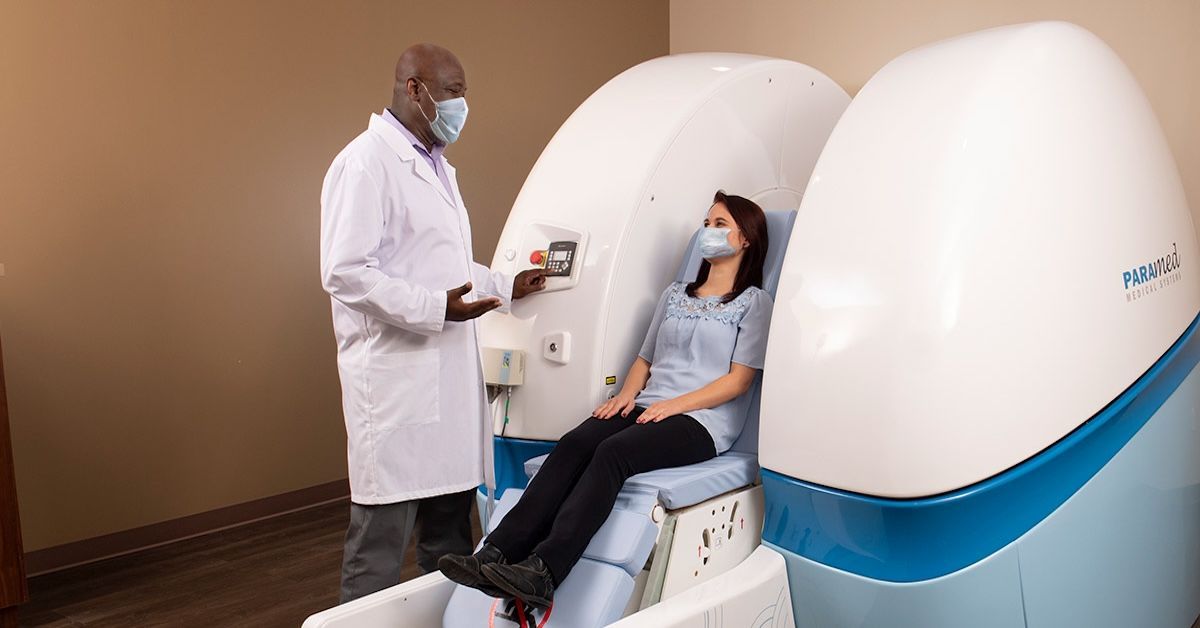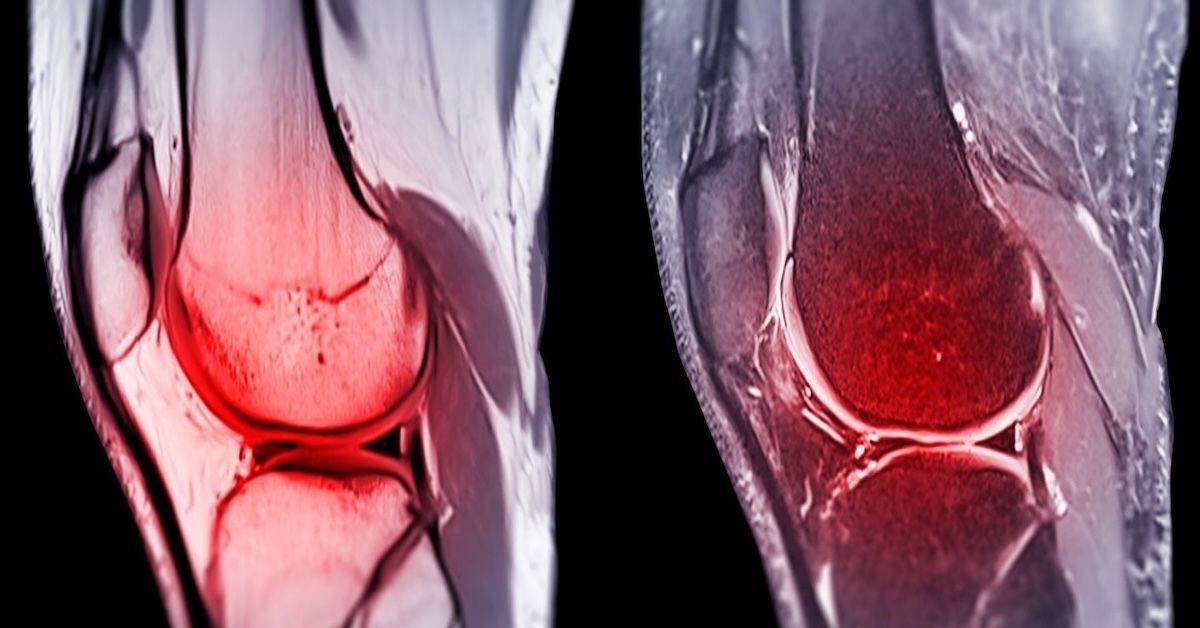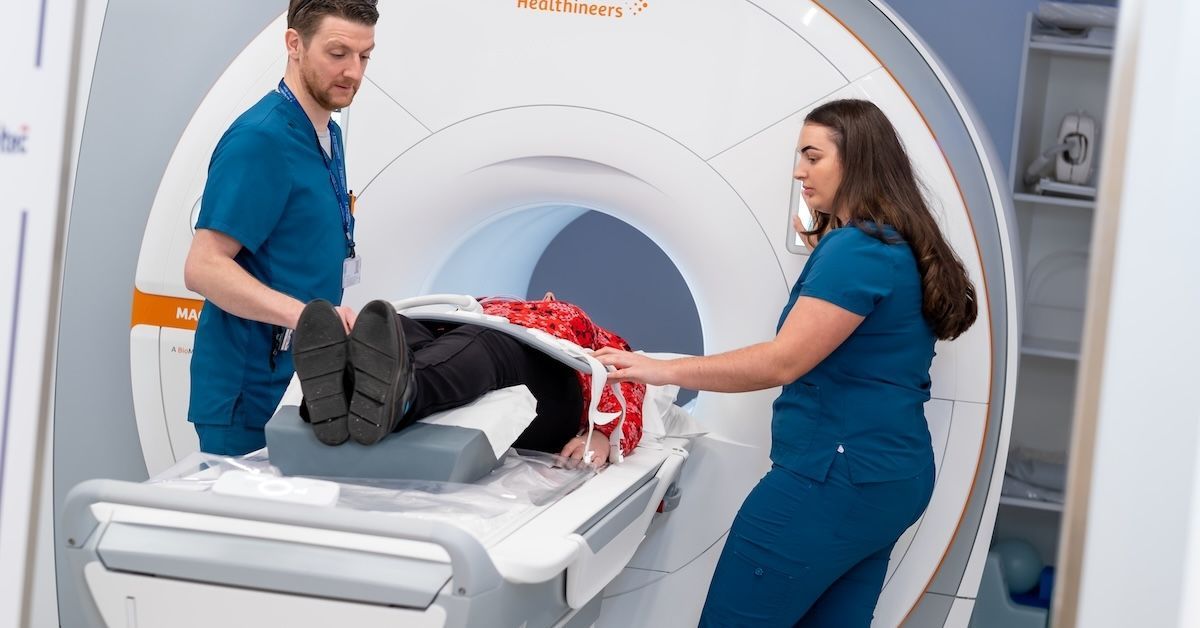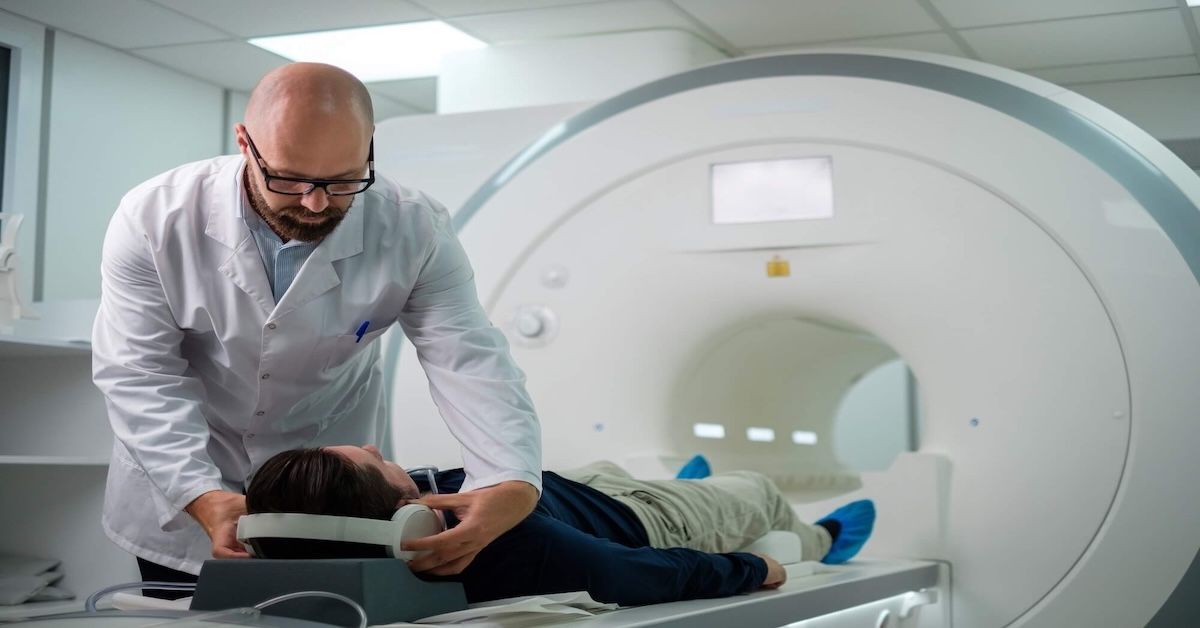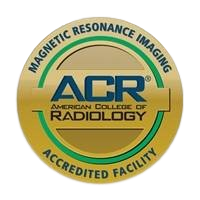457 Lake Cook Road (Deerfield Park Plaza)
Deerfield, IL 60015
Email Us:
Email us directly [+]
Fax: (847) 291-9362
How Do MRI Scans Assist in Diagnosing Spinal Issues?
Back pain and spinal issues can significantly impact your quality of life, making it essential to diagnose these problems accurately and swiftly. One of the most effective tools for diagnosing spinal issues is the MRI (Magnetic Resonance Imaging) scan. This article will explore how MRI scans assist in identifying spinal problems, providing a comprehensive understanding of this vital diagnostic tool.
Understanding MRI Technology
MRI, or Magnetic Resonance Imaging, uses powerful magnets and radio waves to create detailed images of the inside of your body. Unlike X-rays or CT scans, which use radiation, MRIs rely on magnetic fields, making them safer, especially for frequent use. The process involves lying inside a large, cylindrical machine that captures detailed images of your internal structures, including the spine.

Common Spinal Issues Diagnosed with MRI
MRIs are incredibly effective in diagnosing a range of spinal issues. For instance, they can reveal herniated discs, where the cushioning between vertebrae bulges out and presses on nerves, causing pain. They also help identify spinal stenosis, a narrowing of the spaces within your spine, which can lead to nerve compression. Degenerative disc disease, where spinal discs deteriorate over time, is another condition often diagnosed with MRI. Additionally, MRIs can detect spinal tumors, infections, and structural abnormalities like scoliosis.
The MRI Scan Process for Spinal Diagnosis
Preparing for an MRI scan is straightforward. You'll need to remove any metal objects, as metal can interfere with the magnetic field. Comfortable, metal-free clothing is best. During the scan, you’ll lie on a table that slides into the MRI machine. The process is painless but can be noisy, so earplugs or headphones are usually provided. Sometimes, a contrast agent is injected to enhance the clarity of the images, highlighting specific structures more effectively.
Detailed Imaging of Spinal Structures
One of the key advantages of MRI is its ability to produce detailed images of the spine’s anatomy. This includes clear views of the spinal discs, vertebrae, spinal cord, and nerve roots. High-resolution images are crucial for diagnosing conditions accurately, as they allow doctors to see minute details that other imaging techniques might miss.
Identifying and Assessing Spinal Pathologies
MRIs are adept at detecting abnormalities in the spine. For example, they can differentiate between a herniated disc and other conditions like tumors or infections. Radiologists analyze the MRI images to identify the exact nature and location of the problem. In cases like herniated discs or spinal stenosis, MRIs provide precise information about the extent and severity of the condition, guiding effective treatment plans.
Benefits of MRI in Spinal Diagnosis
There are several benefits to using MRI for spinal diagnosis. Firstly, MRIs are non-invasive, meaning they don’t require any surgical procedures. Secondly, unlike X-rays and CT scans, MRIs don’t use radiation, making them safer for repeated use. The high accuracy and reliability of MRIs in detecting spinal abnormalities ensure that doctors can make informed decisions about treatment. Additionally, MRIs play a crucial role in planning and guiding surgical interventions, ensuring better outcomes for patients.
Limitations and Considerations: While MRIs are incredibly useful, they do have some limitations. For instance, they might not always clearly differentiate between different types of tissue or detect every possible abnormality. In some cases, additional imaging or tests might be necessary to get a complete picture. It’s important to discuss these limitations with your healthcare provider to understand the full scope of your diagnosis and treatment options.
Advances in MRI Technology for Spinal Diagnosis
MRI technology continues to evolve, bringing new advancements that improve diagnostic capabilities. Recent developments include functional MRI (fMRI) and diffusion tensor imaging (DTI), which provide even more detailed views of spinal structures and functions. These advancements enhance the ability to diagnose and treat spinal conditions accurately. Looking to the future, ongoing research and technological improvements promise even more precise and faster MRI scans, further benefiting patients with spinal issues.
MRI scans are an invaluable tool in diagnosing spinal issues. Their ability to provide detailed images without the use of radiation makes them a preferred choice for identifying conditions like herniated discs, spinal stenosis, and degenerative disc disease. If you’re experiencing back pain or other symptoms related to spinal problems, consulting a healthcare professional about getting an MRI scan can be a critical step in finding the right treatment.
At Upright MRI of Deerfield, we specialize in providing advanced MRI imaging services with a focus on patient comfort and accurate diagnosis. Our state-of-the-art technology and experienced team are here to help you get the answers you need for your spinal health.
Leave a Comment:

The World's Most Patient-Friendly MRI. A comfortable, stress-free, and completely reliable MRI scan. We offer patients an open, upright, standup MRI experience that helps those who are claustrophobic and stress being in a confined area. Upright MRI of Deerfield is recognized as the world leader in open MRI innovation,
Our Recent Post

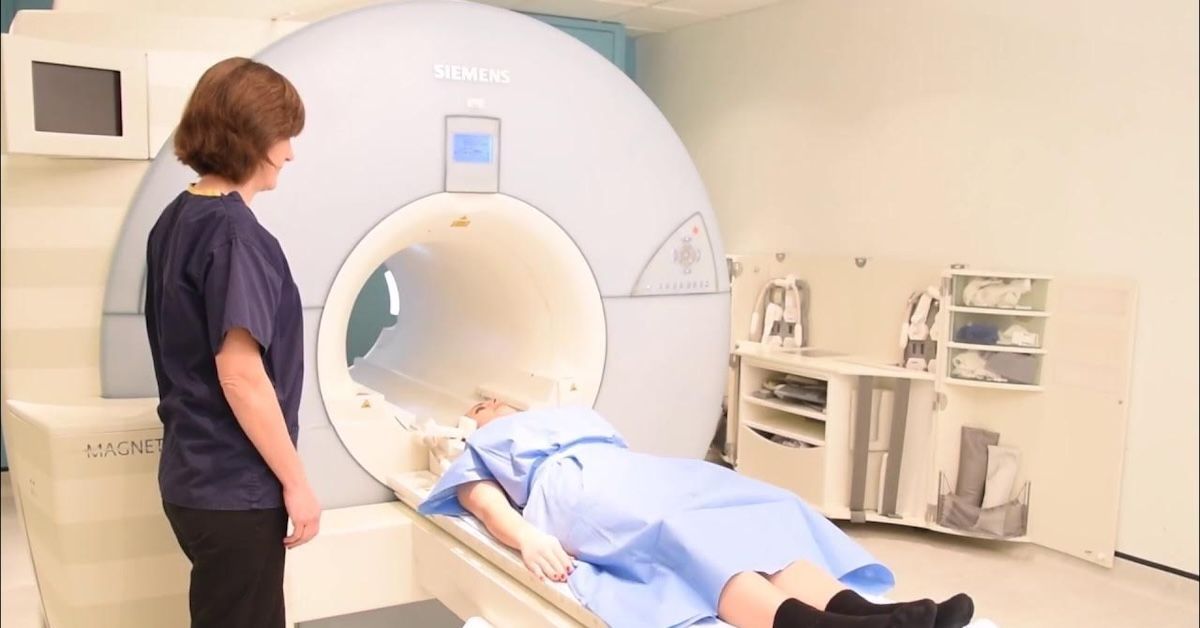
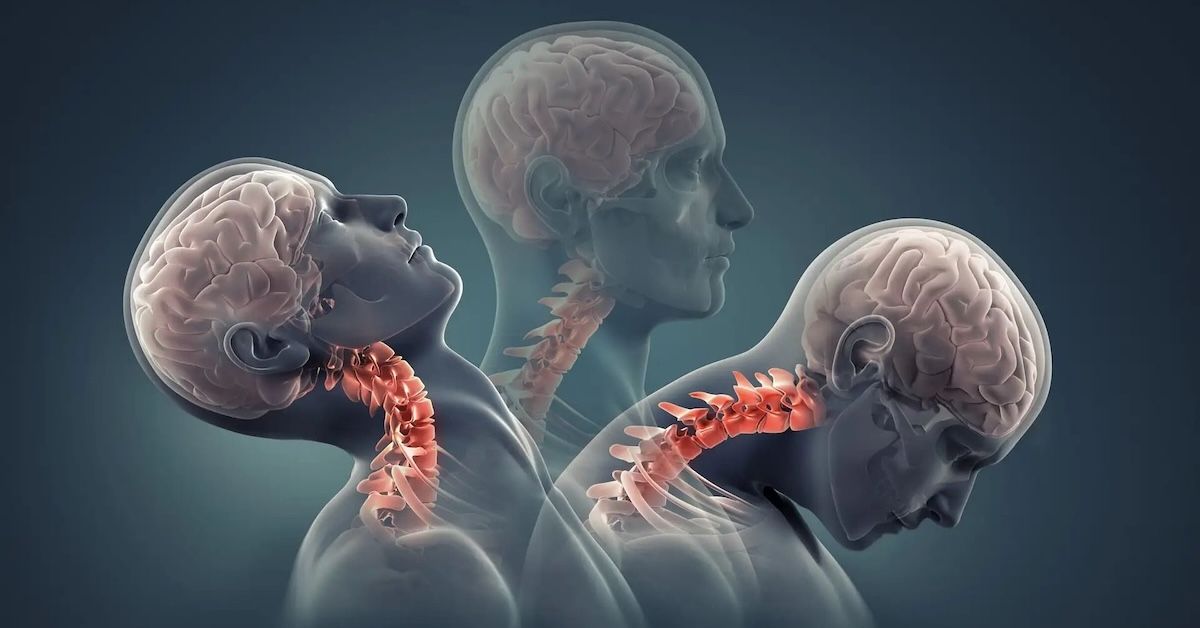

READ PATIENT TESTIMONIALS
Upright MRI of Deerfield.
Susan D.,
Highland Park, 39
I am going to tell everyone about your office! This was a great experience after I panicked in other MRI machines and had to leave. Thank you so much.

Judith B.,
Milwaukee, 61
I suffer from vertigo and other MRIs do not work. This was wonderful…absolutely NO discomfort at all. The MRI was so fast…I wanted to stay and watch the movie! Mumtaz was great. His humor really put me at ease. I’ve already recommended Upright MRI to friends.

Delores P.,
Glencoe, 55
Everything is so nice and professional with your place. I have been there a couple of times. My husband and I would not go anywhere else.


Follow UpRight MRI of Deerfield on Facebook
To see our latest news, updates or to get to know us more, we welcome you to follow along our journey in Facebook.
CONTACT DETAILS
Phone: (847) 291-9321
Address: 457 Lake Cook Road (Deerfield Park Plaza) Deerfield, IL 60015
Email: info@uprightmrideerfield.com
Business Hours
- Mon - Thu
- -
- Friday
- -
- Saturday
- -
- Sunday
- Closed
All Rights Reserved | Upright MRI of Deerfield | Website designed by NorthShore Loyalty
